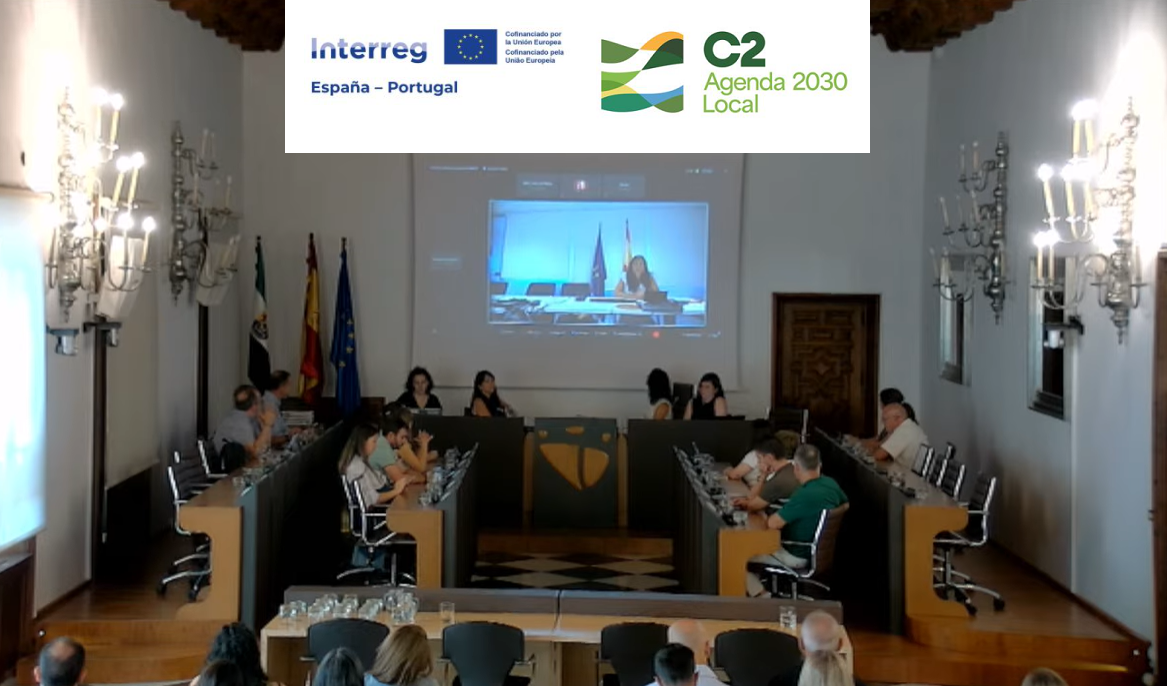- Project approved under the Interreg Spain-Portugal Programme (POCTEP) 2021-2027
- Local Agenda strengthens the capacity of municipalities with fewer than 20,000 inhabitants located less than 50 kilometres from the border to implement the 2030 Agenda
Last Thursday, the final event of the C2_AGENDA_2030_LOCAL project was held, focused on strengthening the capacity of municipalities with fewer than 20,000 inhabitants located less than 50 kilometres from the border to implement the 2030 Agenda and advance the Sustainable Development Goals (SDGs). The meeting brought together municipal representatives, sustainable development experts, and key actors in cross-border cooperation.
The final event highlighted the importance of cross-border cooperation to harness synergies, generate joint projects, and strengthen the implementation of the SDGs in territories close to the border, consolidating a replicable model for other European municipalities.
On behalf of the POCTEP Managing Authority, the General Secretariat for European Funds of the Ministry of Finance, Belén Muñoz participated and congratulated the project partnership, noting that it “achieved its results through the two Cs: capacity building and collaboration.” Muñoz explained that the project involves three Spanish provincial councils (Pontevedra, Cáceres and Huelva) and their three Portuguese counterparts (the intermunicipal communities of Alto Minho, Beira Baixa and Baixo Alentejo), which she described as “a good example of cross-border cooperation.”
Belén Muñoz went on to outline the main features of the Programme and how to obtain funding for identified actions, and introduced the upcoming POCTEP call for small projects (which will be communicated in due course on this website).
“This project has given a voice back to the inhabitants of these small municipalities, who have laid the foundations for what they want for their future,” celebrated Muñoz.
During the project, participating municipalities received support to assess the status of 2030 Agenda implementation and their local strategies. Tools and training activities adapted to the reality of each municipality were developed with the aim of strengthening capacities and promoting concrete solutions to local challenges.
In addition, collaborative capacity building was promoted through seminars, courses, and learning communities that facilitated the exchange of experiences and the identification of joint cross-border projects. The initiative enabled the design of roadmaps and action plans to implement the SDGs in a strategic and tailored way for each territory.
A central outcome of the project was the creation of a Cross-Border Observatory on the 2030 Agenda, which gathers knowledge, good practices, and successful experiences generated during the process. This observatory will serve as a reference and support tool for future cooperation between municipalities in the region.
EVENT RECORDING





